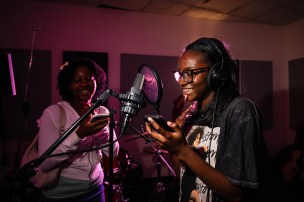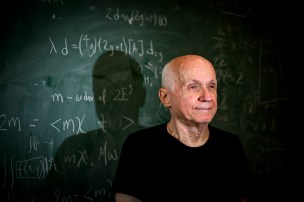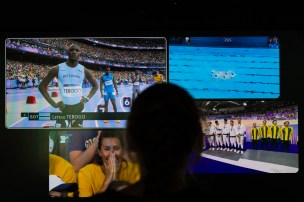Published on
From Congo to Northeastern, the resilient journey of a basketball star
Gemima Motema, 16, had finished competing in a California youth tournament with two cousins when they were told they could not go back to their war-torn home. That was six years ago.
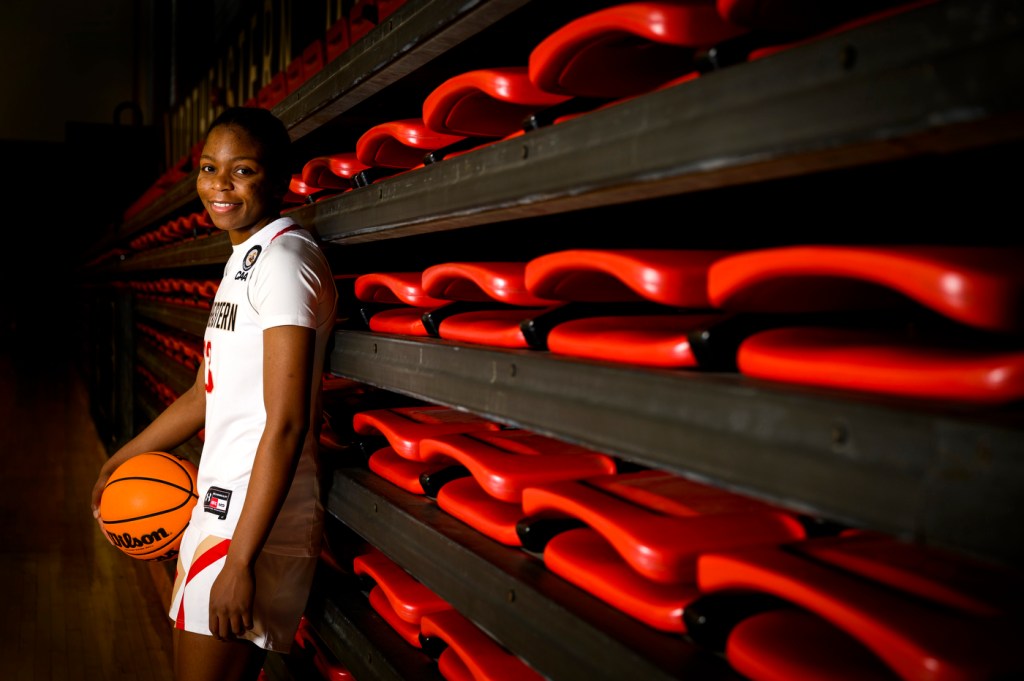
Gemima Motema was 16 when she and her two cousins heard the hard news from Congo. It wasn’t safe for them to return home. They would have to remain in America.
So begins the story of how Motema found her way to Northeastern University, where she has emerged as a star 5-foot-9 junior guard on the women’s basketball team. Her journey from there to here has been sequenced by unexpected and inspiring events that, until now, she has preferred to keep to herself.
“Most people don’t know,” Northeastern teammate Camille Clement says of Motema’s odyssey. “Even people on our team don’t know.”
In 2017, the three girls from Congo were stranded in California, having flown there to participate in an AAU basketball tournament. The fighting in their home country, ravaged by war and rebellion for three decades, had intensified.
Instead of going back home, the three basketball players were told by their families to connect with a young uncle who was residing in Portland, Maine.
“They had never met him,” says Brian Clement, Camille’s father, who would coach Gemima (pronounced Ja-ME-Ma) and one of her cousins on an AAU team, the Maine Firecrackers. “That’s how they ended up in Maine from California.”
The American culture was foreign. The Maine climate was freezing. The three young refugees were fortunate to have their uncle.
“Then he decided to go to California to pursue an acting career,” Brian Clement says. “So the three girls from the Congo now had nowhere to stay.”
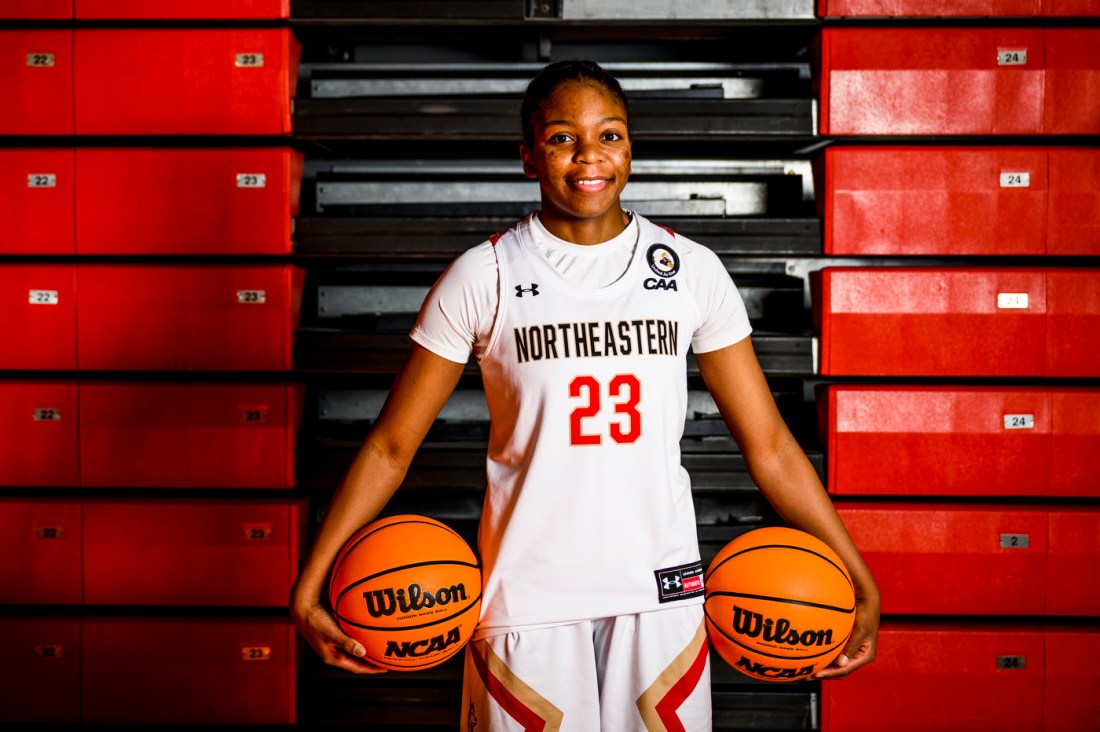
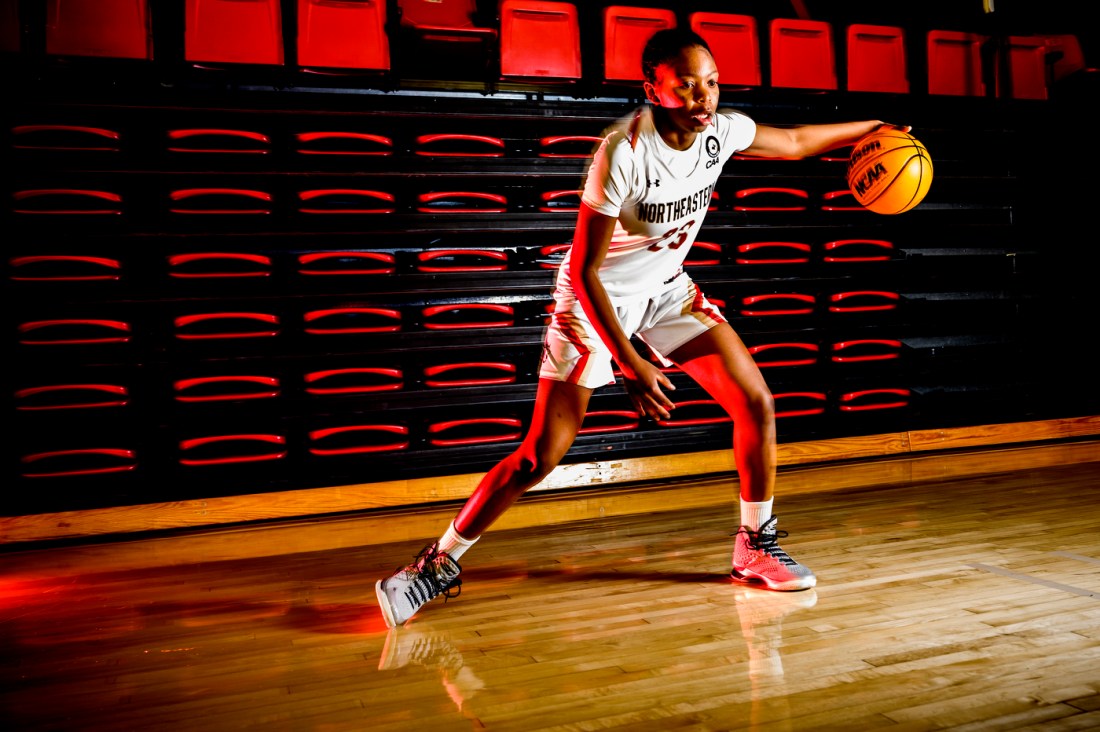
In the years to come their talent for basketball, combined with their ambition to invest in that talent, would enable them to navigate and connect with their new world. But at that time the girls couldn’t begin to imagine their futures. Their immediate fear was that they would be broken up among two or three different households in Portland.
“A number of families were sent an email saying, ‘We’ve got to do something about this, we need to find the girls a place to live,’” says Scott Stacey, a single parent who was raising two children — high school athlete Grace and Charlie, who was in middle school. “Obviously we knew a little bit about their journey and story and situation before I broached the subject with Grace and Charlie. And they were all for it. They jumped on the opportunity to help. They insisted that the girls should come stay with us.”
Scott Stacey became legal guardian to all three girls. Motema would come to view him as her American dad.
“The heroes in this are the Staceys and the three girls,” Brian Clement says. “It’s incredible what they’ve been through — and I don’t think they feel at all like victims. I think they all feel grateful.
“A lot of people would be thinking, ‘I had to leave my family and make a really difficult choice for my future.’ But they don’t complain. I’ve never heard Gemima complain about that. She misses them and she wishes she could see her family. But I think they’re wise beyond their years because of everything they’ve been through.”
‘You welcome them into your house’
Grace Stacey, who as captain of the girls basketball team at Portland High School would play alongside Motema and her cousins, tells the story in a college essay:
Featured Posts
You sit across from three unfamiliar faces whose names you struggle to pronounce.
You’re introduced to your new teammates.
As a captain should, you pick up The Girls from the Congo for practice.
You treat them to greasy burgers and fries after late night games.
One night, they tell you they will be homeless soon.
You welcome them into your house.
Thanks to the Staceys, the girls were able to stay together and play together. Their performances at Portland High School were a revelation. A team that had gone 3-15 the previous season would practically reverse that record. They would make the playoffs for coach Gerry Corcoran, who had started at center at Northeastern in the 1980s alongside Reggie Lewis, the Huskies’ greatest player.
“You don’t have any friends,” Motema says of those early years. “So basketball is the way you’re going to make friends. It was the biggest part of me getting used to the U.S. and everything.”
After games in Maine, Motema (pronounced Mo-TEH-ma) would be approached routinely by fans who predicted she would be recruited by colleges. She taught herself to put the praise into perspective so it wouldn’t go to her head.
“I watch YouTube videos,” she says. “Just watching [successful] people going through stuff.”
Motema and her cousins were newly arrived in Portland when Brian Clement, coach of the local AAU team, was urged to check them out. Two of the girls would play for him. Camille Clement, the coach’s daughter, was stunned by Motema’s athleticism.
“She just moved differently than everyone else,” Camille Clement says. “She was really quick, really bouncy. During warmups my dad would be joking around with her and say, ‘Go dunk this tennis ball’ — and she could do it. She was special and I think everyone knew that her athleticism was going to get her somewhere.”
Motema’s game was outrageous and extroverted. But off the court she was an introvert who insisted on staying in hotel rooms with the Clements during the AAU team’s road trips.
Her cousins were far more outgoing.
Davina Kabantu, who arrived as a high school sophomore, would go on to play basketball at Bates College in Maine. Davina “is quirky and religiously watches ‘Tom and Jerry,’” writes Grace Stacey in her college essay. “Quick and a silent jokester. Your father nicknames her ‘The Gift.’ An incredible artist, she’ll design one of your tattoos.”
Davina’s sister, Amanda Kabantu, who like Motema was enrolled as a high school freshman, is now a player at Bentley University in Waltham, Massachusetts. “She has been nicknamed ‘the Mayor’ because she could make friends with a piece of plywood if she wanted to,” writes Stacey.
Motema was the quiet one. What was she thinking? There was no guessing.
“The middle one is peculiar, different from any human you’ve ever met,” Stacey writes of Motema. “She’ll commit to college and not tell a soul. You’ll find out through a Twitter post.”
In 2021, Motema learned of the death of her father in Congo during the COVID-19 pandemic. It was the rare instance when her emotions were revealed. To this day she has been unable to return home to see her mother and her six older siblings.
“It’s tough when you see somebody you love in just so much pain and struggling,” Scott Stacey says.
He adds, “The other two have [also] lost their dads since they’ve been here.”
Stubborn perseverance
At Northeastern, Motema made a quick impact. In 2021-22 she made the CAA All-Rookie Team. Last year as a sophomore she earned places on the All-CAA third team as well as the conference’s All-Defensive Team. She helped drive the Huskies to nine straight wins down the stretch to earn a share of the CAA regular-season title for the first time.
Her longtime teammate Camille Clement had been the first to commit to Northeastern. She and Motema complemented each other on their AAU team in Maine — Clement as the sharp-eyed shooter from distance, Motema as the slasher who could drive inside past any defender.
Motema and Clement were among the three finalists for the Miss Maine Basketball award as the top girls high school players in the state.
Off the court their relationship was harder to define.
“We honestly don’t talk that much,” Clement says. “I think of her like I think of a cousin: I don’t necessarily talk to them all the time, but I know they’re going to be there if I need them. I know they want what’s best for me. I know they won’t turn their back on me. It’s like a mutual, unwritten, unspoken thing, the relationship.”
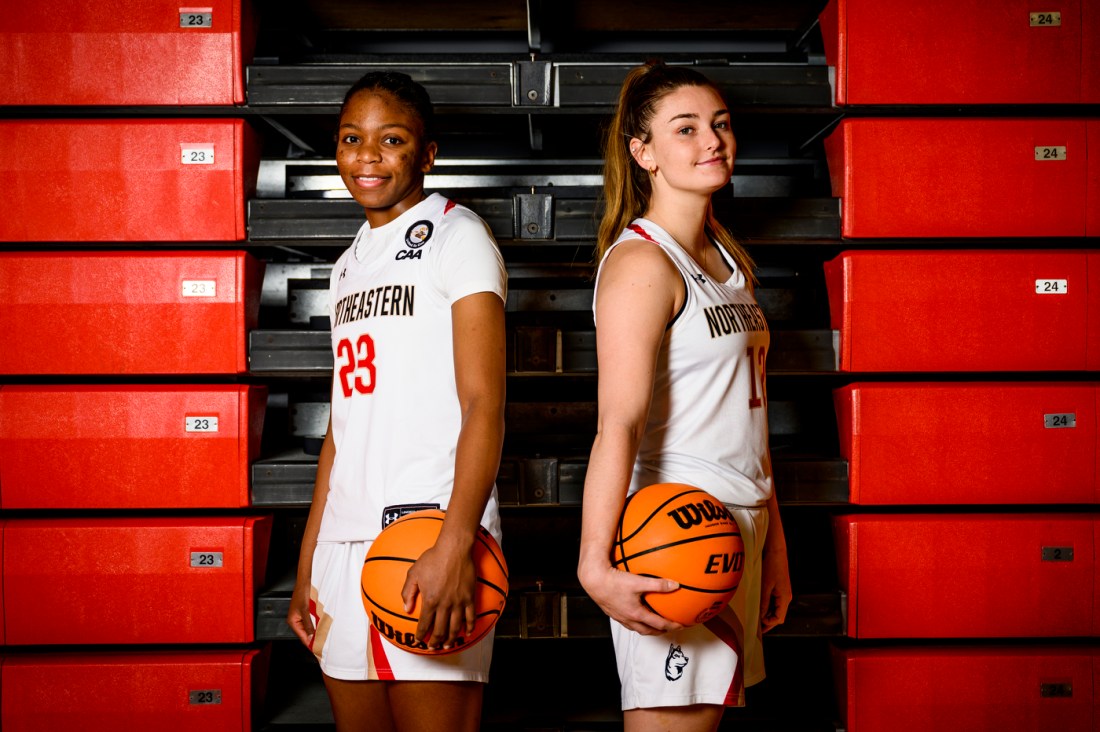
Motema drew people to her with her intelligence, her silence, her funny observations. It wasn’t until Motema had committed to Northeastern (without having visited the university because of COVID-19 restrictions) that Clement understood their relationship.
“She shows her love by giving people a hard time,” Clement says. “I was like, ‘G, it’s going to be a long four years if we go to the same school and you actually don’t like me.’ And then we talked about it and I realized that’s just how she shows her affection.
“Her journey has not been easy,” Clement adds. “She’s had to battle a lot more than I’ve had to, but I think we’re just so lucky that we’ve had each other through everything. She’s one of those people that I would always be able to turn to.”
In October, when 18 people were killed in a mass shooting in Lewiston, Maine, Motema reached out to teammates and Northeastern coach Priscilla Edwards-Lloyd.
“She was like, ‘Hey, check in on Camille,’” Edwards-Lloyd says. And when bad news emerges from Congo, the coach adds, “Camille will be like, ‘Hey, check in on G.’ So they look after each other. They’re grateful for each other being there.”
Perhaps the most telling example of Motema’s strength and stubborn perseverance came after she made the All-State team as a high school freshman. During the AAU season she suffered an injury that felt as though she had been kicked in the calf. For three weeks she kept trying to practice and play before she was diagnosed with a ruptured Achilles tendon.
“I have a picture of it,” Motema says with a hint of a grin. She scrolls through her photos and hands over the phone. It is a grisly image from the operating room. The length of her calf has been opened to reveal the two snapped ends of her Achilles tendon, one near the knee, the other rolled up near the ankle.
You ask whether the injury was painful while she tried to play through it.
“Yeah, I was in pain.”
The NBA star Kobe Bryant bravely shot two free throws with a ruptured Achilles in 2013 before limping off the court. By that standard, continuing to play for three weeks is extraordinary.
“So why didn’t you say something?” you ask.
“I wanted to play basketball,” Motema says.
Yet another challenge
“I think it’s remarkable,” Edwards-Lloyd says of Motema’s story. “I don’t want to say [she is a] loner, not that this has a negative connotation, but it’s how she has found comfort and support in herself. She is someone who will always find a way to do the things she needs to do. And get it done.”
It’s been a hard season for the Huskies (8-15). Injuries to Clement (who underwent hip surgery in December) and others have decimated their hopes of reaching their first NCAA tournament since 1999.
Motema had recovered from a hand injury when she felt a familiar pain in her other calf during a Feb. 4 loss at North Carolina A&T. It was another ruptured Achilles. Another surgery. Another extended recovery.
Brian Clement is optimistic for Motema.
“For many young college athletes this would be maybe the worst thing they would go through,” her former AAU coach says. “But she’s been through much deeper, more difficult circumstances. We hope and pray that she gets back to her old athletic and exciting ability.”
Eventually she hopes to play basketball — perhaps in France (she speaks French, Swahili and Lingala as well as English) — on her way to making a career in sports. Next year there will be another run with Northeastern at winning the CAA title and advancing to March Madness.
In the meantime there’s a class she’s looking forward to.
“Finance class,” says Motema, who is majoring in communications. “I’m almost done with school so I want to learn how to manage my money.”
“You want to be independent?” Motema is asked.
“I am always independent,” she answers.
Ian Thomsen is a Northeastern Global News features writer. Email him at i.thomsen@northeastern.edu. Follow him on X/Twitter @IanatNU.







